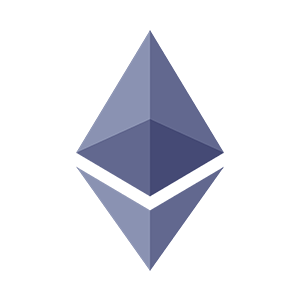
Ethereum
Ethereum Price Converter
Ethereum Information
Ethereum Supported Platforms
| ABWEETH | ERC20 | ARB | 0x35751007a407ca6feffe80b3cb397736d2cf4dbe | 2023-12-03 |
| ABWETH | ERC20 | ARB | 0x82af49447d8a07e3bd95bd0d56f35241523fbab1 | 2021-05-30 |
| ANYETH | BEP20 | BNB | 0x6f817a0ce8f7640add3bc0c1c2298635043c2423 | 2020-11-02 |
| ANYETH | ERC20 | FTM | 0xb688e18f34e6e424c44b247318f22367ed7df3e2 | 2020-11-09 |
| ANYETH | HRC20 | HT | 0x62c10412d69823a98db5c09cf6e82810e0df5ad7 | 2020-12-21 |
About Ethereum
Ethereum is a decentralised blockchain platform that provides a framework for creating and executing smart contracts and decentralised applications (dapps). Conceived by Vitalik Buterin in 2013 and launched in 2015, Ethereum was developed to extend the functionality of blockchain technology beyond simple value transfers by introducing programmability.
At the heart of Ethereum is the Ethereum Virtual Machine (EVM), an execution environment that processes smart contracts, ensuring that code runs exactly as written without central oversight. This design enables developers to build applications that operate in a trustless and transparent manner, serving use cases in areas such as finance, digital identity, and supply chain management.
Ether (ETH), the native cryptocurrency of the platform, is used to pay for network operations like gas fees and to support the incentives that maintain the network's security. By facilitating these essential functions, Ether underpins both routine transactions and the broader engagement of participants within the ecosystem. ETH also serves as a key trading asset on cryptocurrency exchanges, enabling users to trade or invest in various digital assets and participate actively in decentralized finance (DeFi) markets.
Ethereum’s open-source nature and its active global development community drive ongoing protocol improvements. This continuous evolution supports a wide range of applications and positions Ethereum as a key platform in the landscape of decentralised technology.